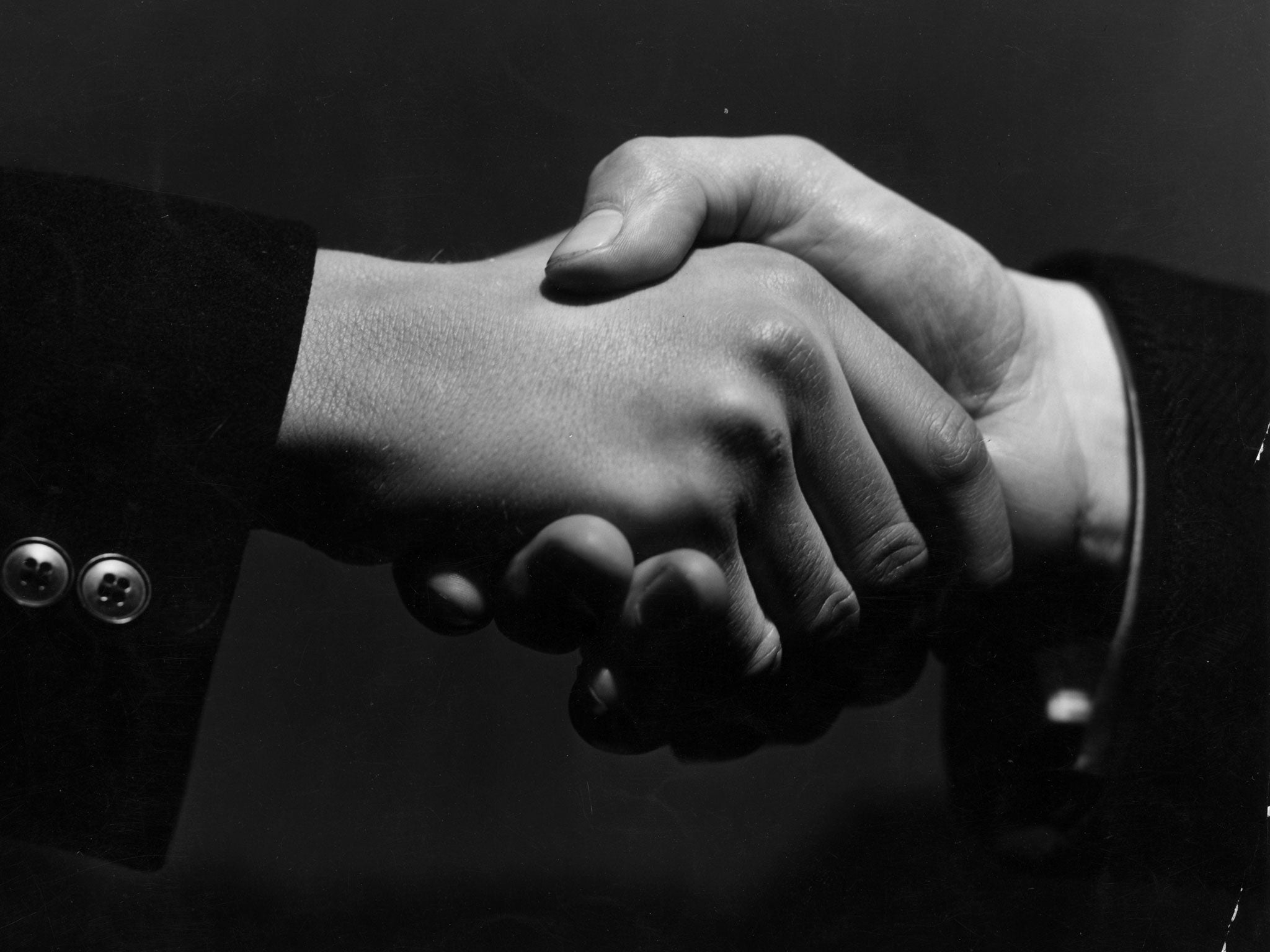How do we regain trust in our institutions?
In the last decade the media, bankers, politicians and the police have all fallen from grace. If 2013 is to be a good year, rebuilding trust must be our first priority


Your support helps us to tell the story
From reproductive rights to climate change to Big Tech, The Independent is on the ground when the story is developing. Whether it's investigating the financials of Elon Musk's pro-Trump PAC or producing our latest documentary, 'The A Word', which shines a light on the American women fighting for reproductive rights, we know how important it is to parse out the facts from the messaging.
At such a critical moment in US history, we need reporters on the ground. Your donation allows us to keep sending journalists to speak to both sides of the story.
The Independent is trusted by Americans across the entire political spectrum. And unlike many other quality news outlets, we choose not to lock Americans out of our reporting and analysis with paywalls. We believe quality journalism should be available to everyone, paid for by those who can afford it.
Your support makes all the difference.The new year holds few prospects of being a lucky one. At home, the recession will continue with biting cuts, unemployment and industrial unrest. Abroad, the continuing travails in the European Union, in Syria and with Iran’s nuclear weapons programme will be likely to dominate the headlines. Turning to history offers little comfort. In 1813, a resurgent Napoleon was rebuilding his army to a menacing 400,000 men, while 1913 was the last year before the world descended into the most devastating war history had seen.
One task above all others should preoccupy us in Britain if we want a good year. Politicians and the media will obsess about the future of the Coalition, whether Labour’s revival will continue, which policies will best stimulate growth and the response to the Leveson Inquiry into the media. But the rebuilding of trust should be our first priority. On it, all else hinges.
It is 10 years since the distinguished philosopher Onora O’Neill delivered her Reith lectures A Question of Trust, which placed the subject squarely on the public agenda. Yet the years that followed were some of the bleakest for trust, with MPs’ expenses leading to widespread dismay, the actions of bankers blamed for precipitating the recession, and their blatant greed over their pay displaying a callous disregard for our public sensitivities at a time when so many were suffering financially. These events led me to write a book in 2009, Trust, analysing how and why it had been lost, and how best to recover it.
The year that is ending has been the worst for trust in living memory. To merit trust requires acting in an ethical way, as well as showing high levels of professional competence. Yet the BBC, which in the bleak years of the recent past had always been a beacon of hope, was plunged into a series of crises calling into question both its integrity and its professional judgement. The police also had a bad year. The report in September into the deaths of 96 Liverpool fans in the Hillsborough disaster blamed the police for distortion of evidence. Then, earlier this month, mistrust was further fuelled by allegations that police officers had fabricated evidence regarding the altercation between Andrew Mitchell, the former chief whip, and the police at the gates of Downing Street. Trusting the police is not an option in a successful civil society, it is an utter necessity, and a whole series of police actions, cover-ups and lamentable excuses by apologists are indicative of a deep malaise.
When society begins to lose faith in its institutions, it reaches for the traditional instruments of tighter regulation, enhanced monitoring and control, and more severe punishments for malpractice. Such responses may be inevitable, but that does not mean that they are optimal. Neither are the answers to be found in increased surveillance and transparency alone. Britain has more CCTV cameras than most nations do. But while closer scrutiny and observation may deter law-breaking and bad practice, they do nothing to generate ethical conduct. Good society needs citizens to behave well, not because of fear of being found out and public humiliation, but because they want to behave well, do a good job, and to act responsibly for the benefit of all. I wish the Government and others running our major institutions understood this distinction. It would appear that most do not.
So how can we best build trust in 2013? The behaviour of our leaders is important, because the rest of us are significantly affected by the example of our political, cultural and religious leaders. But the heart of the answer is to be found in how we bring up our young people. Schools need to teach the importance of good character, and to lay far greater emphasis on right and wrong, and the importance of strong and practised ethical values. Schools, as every parent knows, need to be disciplined places, where ethics permeate every single aspect. Schoolchildren need to understand that they should behave honestly and well not because they will be found out and punished if they do not, but because it is the right way to behave.
Is character education happening in schools today? I fear not. Michael Gove, the Education Secretary, is building a reputation as one of the great post-war education secretaries. But he has a lacuna when it comes to the importance of character. His insistence on exams as the sole measure of the purpose of schooling has led to the neglect of a more holistic vision for schools. Universities, meanwhile, seem to have abandoned responsibility for moral development among their students. Undergraduate life can leave our young way adrift of the expectations of employers and society.
This year was not all gloom. One star glowed very brightly in the shape of our Olympic and Paralympic athletes and volunteers. The total dedication and honesty of our Olympians and Paralympians inspired a nation with a vision of the importance of peak physical endeavour and hard work, instead of the drug-taking and cheating of some sportsmen in the past and too many of our boorish footballers today. The volunteers, meanwhile, boosted by the Army drafted in to help at the last minute, provided an example of selfless service and good manners. They provide the most important clue to building trust in the future.
Castigating others for untrustworthy behaviour may make us feel better but ultimately leads nowhere. Building a trusting society in the future depends on how each and every one of us acts in our private and professional lives. Volunteering in the Decade for Social Action would be a good starting point. We must ourselves be the change that we want to see in the world.
Anthony Seldon is Master of Wellington College. His book ‘ Trust’ is published by Biteback
Join our commenting forum
Join thought-provoking conversations, follow other Independent readers and see their replies
0Comments